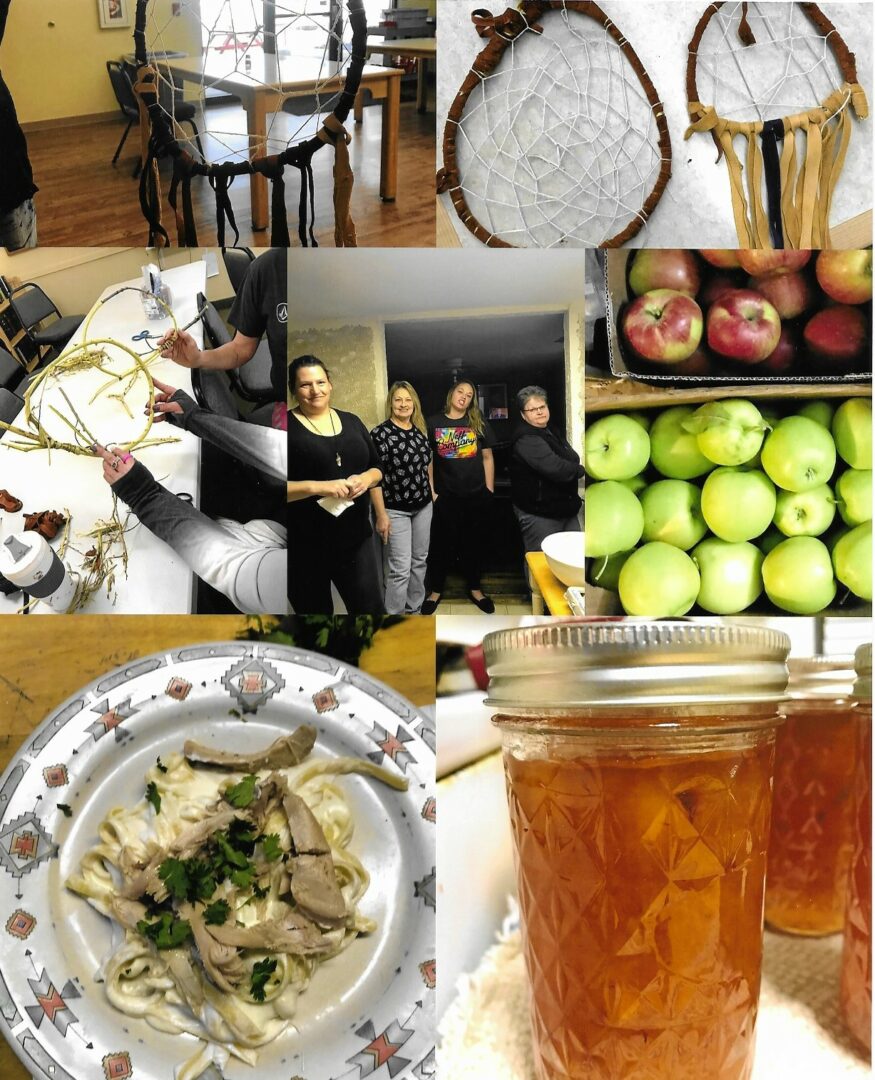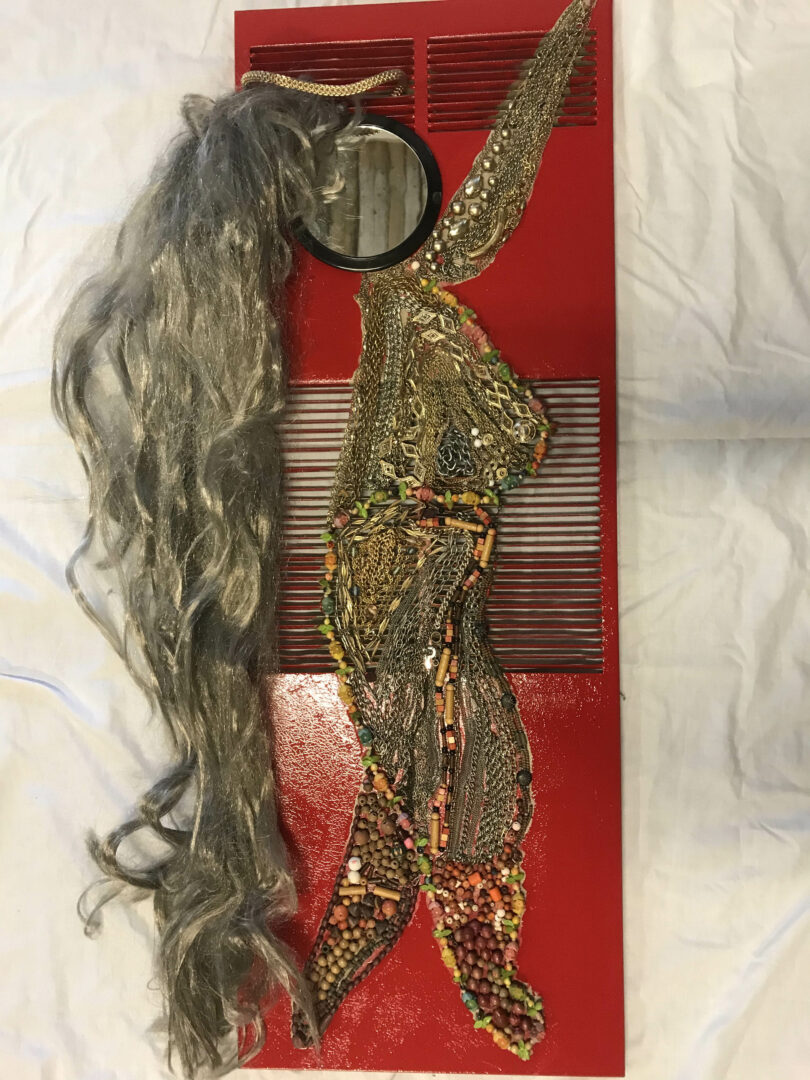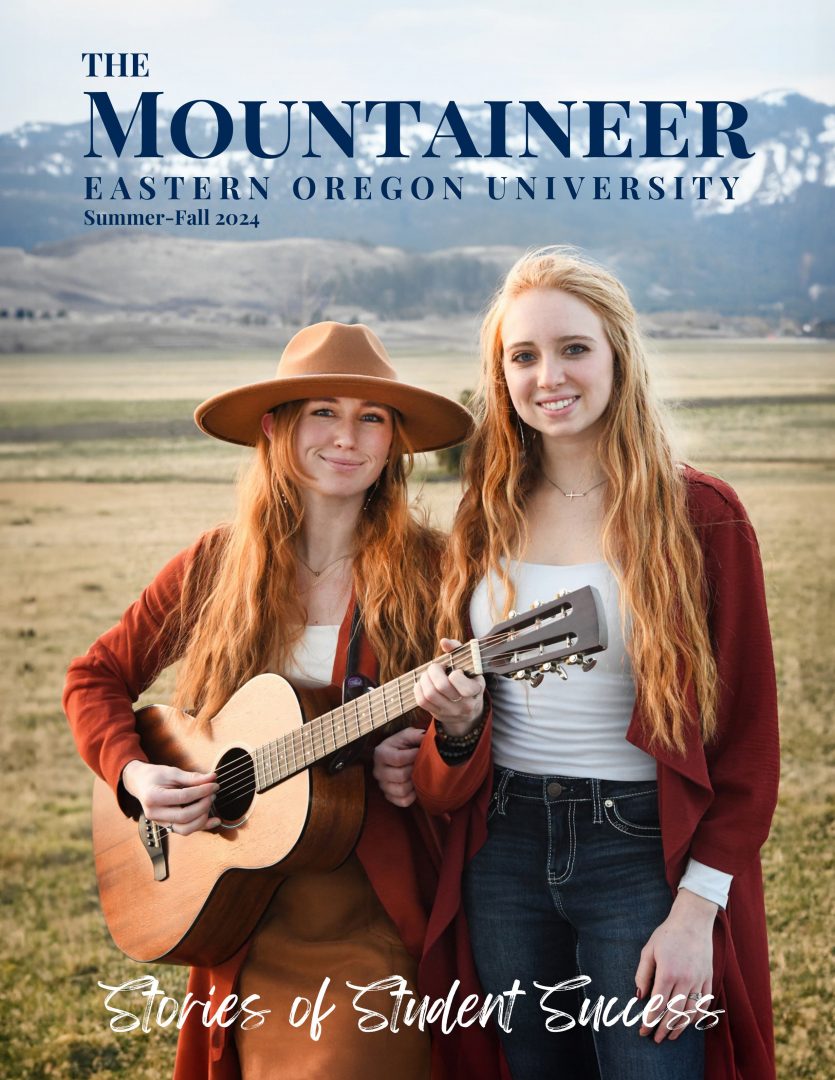Angelic Rehabilitation
By Katy Nesbitt

Of the artwork all the innovative artist Danean Herrera-Riley creates, the upcycled angels best depict the trail she’s blazed in the last two decades.
The angels are eclectic collections made of buttons, ribbon and beads—their images used for greeting cards sold to help support a transitional house for women coming out of rehab and prison. The female deities were cobbled together from leftover craft paraphernalia, a metaphor for how Herrera-Riley and the women she serves have rebuilt their lives to reach independence.
Herrera-Riley describes herself as an all-around artist, working with different mediums. Her wall hangings, on display at Hatchlab in Baker City, are more traditional Native American artwork, with images of animals like coyote, turtle and elk, all intricately beaded on buckskin.
The angels are new to her repertoire, Herrera-Riley, a Klamath Indian, said.
“Angels never came to me until after my mother died in December—that’s when the first three came,” Herrera-Riley said. “When my father died in February, the fourth and fifth ones came.”
As a child, Herrera-Riley moved a lot, never going to the same school for an entire year. As a young adult, she struggled with substance abuse. After she got sober, she moved her children to Halfway and eventually found her way to Blue Mountain Community College and later graduated with a liberal arts degree from EOU.
While Herrera-Riley didn’t major in art, she said it’s always been an outlet for her.
“For me as a Native American, art has always grounded me. It is where I find peace, especially in my life of chaos,” Herrera-Riley said.
The 55-year-old mother of two grown children combines her experience of transition and her love of art into her current work helping women re-integrate into society as she works on a master’s degree in counseling.
The transitional housing focuses on women coming out of prison because there isn’t a lot of housing available. She said women her age find it especially difficult to get help. Younger women with small children more easily qualify for housing assistance, Herrera-Riley said, and they aren’t old enough for senior housing.
“That age group gets left over in kind of a void,” she said. “They don’t have housing or a rental history.”
Besides a place to live, Herrera-Riley tries to provide a running start, helping her clients with life skills.
“I teach women how to pick and can fruit,” Herrera-Riley said. “I have a gleaning program [to collect fruit from orchards] and besides canning I teach cooking and sewing.”

Herrera-Riley said her classes are open to all women in the community, not just those living in transitional housing. The life skills she teaches spills into art, where women make rugs out of T-shirts and quilts out of jeans, sold in the upcycled shop, along with the angelic greeting cards. She has also taken the program to other tribes and communities.
“I wanted to show them I’m teaching classes and writing a program to incorporate cooking, canning and gleaning—even if I teach just one person at a time,” Herrera-Riley said.
Herrera-Riley’s success comes from her personal drive, attending college while raising two children and working.
As a part Native American and part Mexican woman, she had to deal with racism from within her own culture, as well as during her time in a Native American rehab program when she and the other women were targeted as a group.
“When I think about barriers, like a Caucasian person being racist with me, I try to overcome it,” she said. “I don’t want to use it as an excuse and I figure out a way to go around it.”
The artwork and upcycled items Herrera-Riley makes with the women she teaches are for sale at One Transition at a Time in Baker City or online at onetransitionatatime.com.
